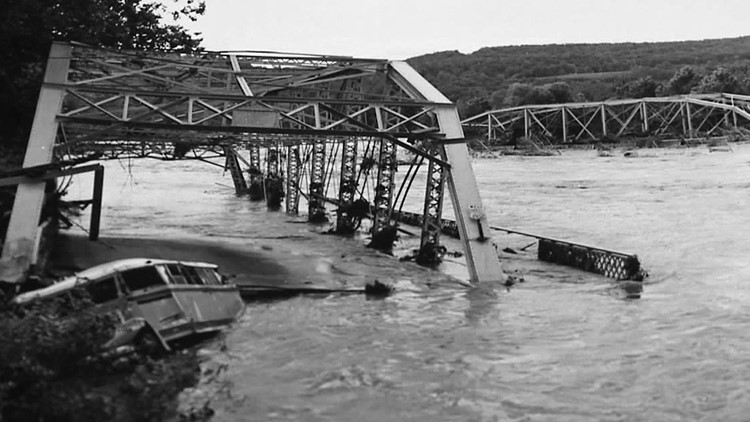HARRISBURG -- Just about every year, nature disrupts lives and causes millions of dollars in property damage across Pennsylvania.
Floods force people from their homes. Snow storms strand drivers and can leave people snowbound, without power for days. Droughts can create crop losses and lead to brush fires.
"Pennsylvania's so diverse in relationship to weather," notes Pennsylvania Emergency Management Agency (PEMA) Director Richard Flinn, who says the agency needs someone with weather expertise to help coordinate the efforts of all state agencies in emergencies. So Flinn just created a new position, the official state meteorologist.
"When we're sending responders out, we need to know what that the weather situation is and what those changes could be," says Flinn. "Because we don't want to put people in harm's way."
Last month, Flinn chose Luzerne County native Jeff Jumper over 60 applicants for the state meteorologist job. He starts the $62,000 a year job next week.
Critics don't question Jumper's qualifications. They ask why have a state meteorologist in the first place?
"It makes you question why we aren't looking at how to save money, rather than asking taxpayers to pay more," said Matthew Brouilette of the conservative advocacy group, the Commonwealth Foundation.
Brouilette calls the meteorologist position a luxury in a tight budget.
"This is the kind of service that we should look for the private sector to do using free or contracting out services that are available," says Brouilette.
The private service Accuweather already provides forecasts for the Pennsylvania Department of Transportation receiving $116,000 per year for its forecasts. The state also gets daily forecasts from the National Weather Service, for free.
Flinn says it is hard to cite a specific example of how adding a state meteorologist better benefits taxpayers.
Newswatch 16 Investigates asked Flinn why make the hire when Governor Wolf imposed a hiring freeze for state employees.
"The caveat to that is in a hiring freeze you can hire critical employees," noted Flinn who calls the hiring critical because the next weather emergency will be coordinated by the state meteorologist, which Flinn says will run more efficiently.
Flinn adds that the position was approved and Jumper was offered and accepted the job before the hiring freeze.
Right now, 11 other states have state meteorologists, 19 others have full-time college professors at state universities who work as the official state meteorologists during weather emergencies.



